Digital Services Act
Filter resources
-
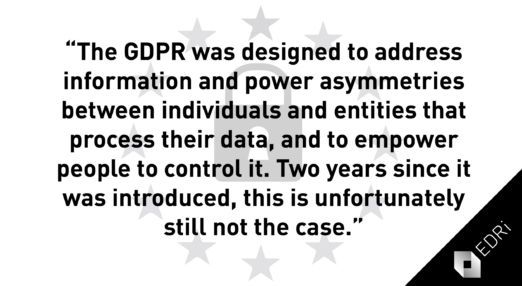
Open Letter: EDRi urges enforcement and actions for the 2 year anniversary of the GDPR
On 25 May 2020, for the General Data Protection Regulation (GDPR) 2 year anniversary, EDRi sent a letter to Executive Vice-President Jourová and Commissioner Reynders to highlight and urge action to the tackle the GDPR’s vast enforcement gap.
Read more
-
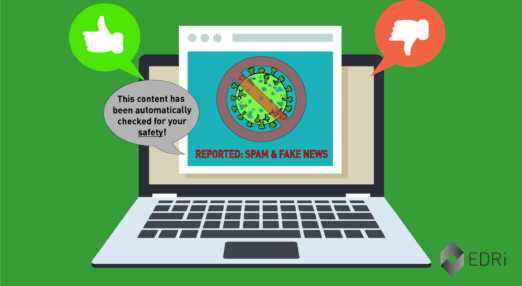
COVID-Tech: COVID infodemic and the lure of censorship
In EDRi's series on COVID-19, COVIDTech, we will explore the critical principles for protecting fundamental rights while curtailing the spread of the virus, as outlined in the EDRi network's statement on the virus.
Read more
-
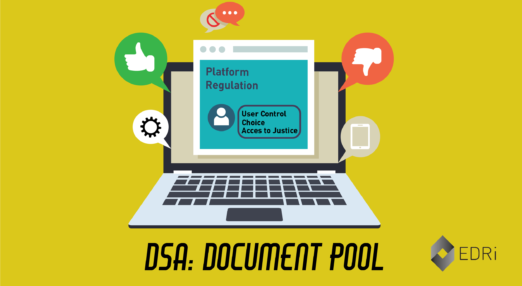
Digital Services Act / Digital Markets Act: Document pool
The DSA-DMA package will affect how intermediaries regulate and influence user activity on their platforms, including people's ability to exercise their rights and freedoms online. It also aims at limiting the abuse of power by very large and gatekeeper platforms.
Read more
-

Everything you need to know about the DSA
We have created a document pool in which we will be listing relevant articles and documents related to the DSA. This will allow you to follow the developments of content moderation and regulatory actions in Europe.
Read more
-

#WhoReallyTargetsYou: DSA and political microtargeting
Europe is about to overhaul its 20-year-old e-Commerce Directive and it is a once-in-a-decade chance to correct the power imbalance between platforms and users. As part of this update, the Digital Services Act (DSA) must address the issue of political microtargeting (PMT).
Read more
-
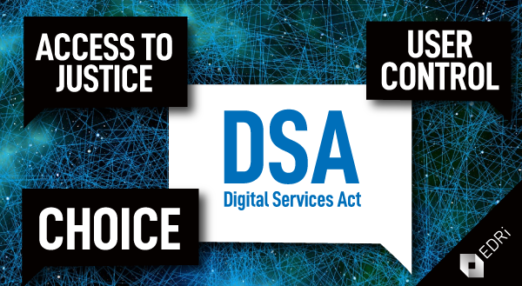
DSA: Platform Regulation Done Right
The DSA is as a unique opportunity to improve the functioning of platforms as public space in our democratic societies, to uphold people’s rights and freedoms, and to shape the internet as an open, safe and accountable infrastructure for everybody.
Read more
-
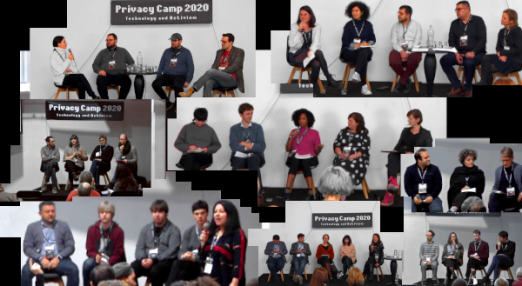
#PrivacyCamp20: Event Summary
The 8th edition of Privacy Camp revolved in 2020 around the topic of Technology and Activism, the schedule being composed of ten sessions in different formats. What were these about? Read below a summary of each discussion, with references to full session recordings.
Read more
-

Competition law: what to do against Big Tech’s abuse?
This is the second article in a series dealing with competition law and Big Tech. The aim of the series is to look at what competition law has achieved when it comes to protecting our digital rights, where it has failed to deliver on its promises, and how to remedy this.
Read more
-

Our New Year’s wishes for European Commissioners
EDRi wishes all readers a happy new year 2020! In 2019, we had a number of victories in multiple fields. The European Parliament added necessary safeguards to the proposed Terrorist Content Online (TCO) Regulation to protect fundamental rights against overly broad and disproportionate censorship measures. The Court of Justice of the European Union (CJEU) ruled […]
Read more
-

Interoperability: A way to escape toxic online environments
The political debate on the future Digital Services Act mostly revolves around the question of online hate speech and how to best counter it. Whether based on state intervention or self-regulatory efforts, the solutions to address this legitimate public policy objective will be manifold. In its letter to France criticising the draft legislation on hateful […]
Read more
-

A privately managed public space?
Our “public spaces” online where we meet each other, organise, or speak about social issues, are often controlled and dominated by private companies (platforms like Facebook and YouTube). Pushing platforms to decide which opinions we are allowed to express and which not is not going to solve major problems in our society. The EU rules […]
Read more
-

Trilogues on terrorist content: Upload or re-upload filters? Eachy peachy.
On 17 October 2019, the European Parliament, the Council of the European Union (EU) and the European Commission started closed-door negotiations, trilogues, with a view to reaching an early agreement on the Regulation on preventing the dissemination of terrorist content online. The European Parliament improved the text proposed by the European Commission by addressing its […]
Read more
